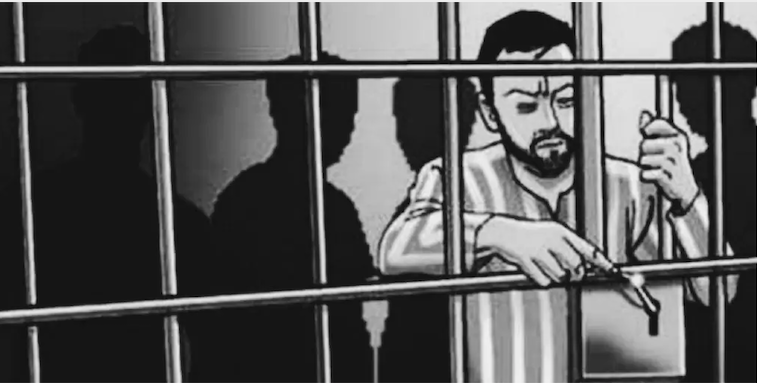
Thousands of BNP leaders and activists advocating for the resignation of the Awami League government and demanding elections under a non-partisan neutral administration have been imprisoned. Allegations persist of ongoing torture both before and after their arrests. Some have tragically passed away while in custody.
Since October 28, law enforcement agencies have been conducting operations to apprehend BNP leaders and activists. Numerous reports have surfaced regarding the alleged torture of BNP activists and their relatives during this campaign. Furthermore, there are allegations of continued mistreatment inside jails after their arrests. Tragically, at least five BNP leaders have lost their lives during this period.
The BNP alleges that since the Awami League came to power in 2008, numerous BNP leaders and activists have died due to torture and inadequate medical treatment in prisons. Recently, even amidst the movement and struggle for the resignation of this government, leaders and activists are reported to have died in custody.
In this context, BNP's Human Rights Secretary, Advocate Asaduzzaman, stated, 'The consecutive deaths of several leaders within a short span in prison represent a state failure.' He emphasised that the government holds complete responsibility for any deaths occurring in custody, citing state negligence. Such incidents, he asserted, unequivocally fall under the purview of human rights violations, and the government must take accountability for these occurrences.
He highlighted, 'Since the Awami League assumed power, numerous BNP leaders and workers have passed away in prisons nationwide. Nasir Uddin Ahmed Pintu, the Dhaka Divisional Organisational Secretary and former Chhatra Dal president is among them.' Referring to historical incidents, he mentioned, 'During the 1-11 tenure, BNP Acting Chairman Tarique Rahman did not receive adequate treatment while in prison. Moreover, our party Chairperson, Khaleda Zia, walked into jail unaided and later required a wheelchair, leading some party leaders to allege slow poisoning while in custody.' The recent surge in prison deaths, as reported by the media, has raised concerns within the party.
According to a recent report from a national daily, approximately 100 individuals, including BNP leaders, have died in prison custody this year. Ain O Salish Kendra revealed that between January and November, 93 inmates lost their lives in prison custody, marking the highest number in recent years. Among last year's 65 deaths in jail custody, a majority were BNP activists. Additionally, amid an ongoing crackdown on the opposition, five more individuals, identified as BNP activists, were killed this December.
Monirul Islam, the organising secretary of Ward No. 6 in Godagari's Kankanhat Municipality and former general secretary of Jubo Dal passed away recently in Rajshahi Central Jail. He had been held in Rajshahi jail since November 7 on charges related to sabotage. Gholam Mostafa Mamun, a BNP member in the Rajshahi district, expressed concern over Monirul's death, stating, 'Numerous leaders and activists are falling ill in jail. Many are being apprehended while already unwell and aren't receiving adequate treatment. We demand an investigation to ascertain the precise cause of this fatality.'
During a recent virtual press conference last Friday, BNP Senior Joint Secretary General Ruhul Kabir Rizvi expressed concern, stating, 'A significant number of prisoners across the country are BNP leaders and workers, and some are facing life-threatening situations. Due to the suppression of freedom of expression, inhumane treatment is being inflicted upon active leaders and activists of the opposition party, both inside and outside the prison. Prisoners endure unimaginable torture and are deprived of necessary medical care. Sick prisoners are reportedly left restrained in the prison hospital.'
He mentioned, 'BNP leaders and activists are confined round the clock in cramped and suffocating cells within the prisons. They're being deliberately made ill and pushed towards death by providing them with extremely poor-quality food for cattle and goats. The government and law enforcement agencies are crafting narratives to evade accountability for these leaders' deaths. Sheikh Hasina and her circle of officials associated with the prison cannot evade responsibility for the deaths occurring in custody. They must be held accountable for every death and act of murder.'
The BNP spokesperson complained, citing a recent report from Britain's Guardian newspaper that spotlighted the government's crackdown on opposition political workers in Bangladesh. The report detailed how Sheikh Hasina's police forces apprehended thousands of opposition leaders, activists, and supporters, resulting in overcrowded prisons where individuals are falling ill and dying.
Rizvi referenced the media, stating, "The country's 68 prisons, designed for a capacity of under 43,000 inmates, currently hold around 88,000 individuals. The illegitimate ruling government has transformed the entire country into a state of chaos to sustain its power. Safety is non-existent at home and outside both. Even those in prison face the greatest risks."
